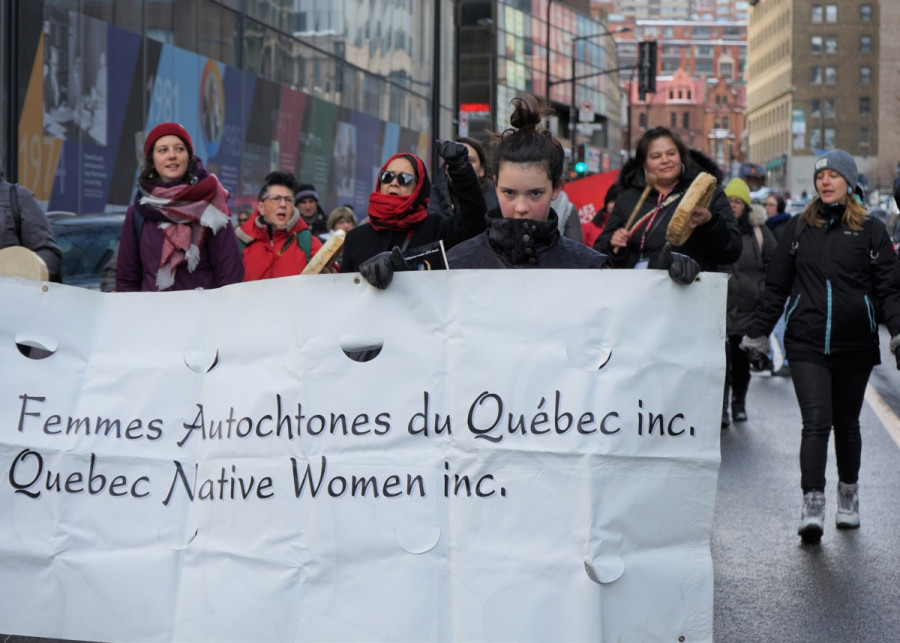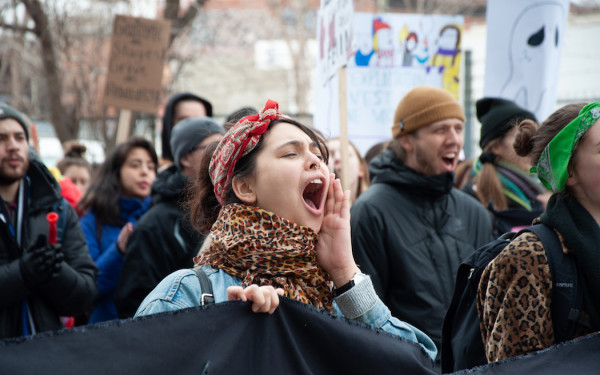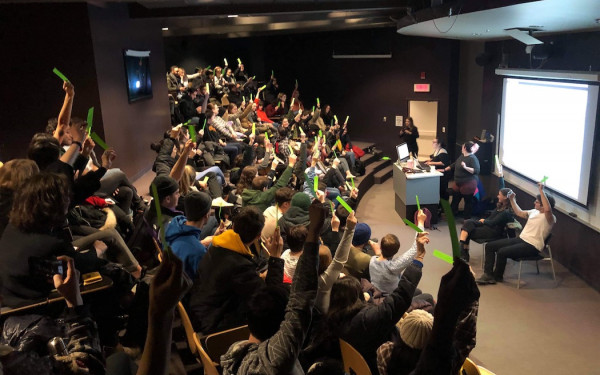Indigenous Women Say Canada’s Legislative is Discriminatory
Indian Act Continues to Harm First Nations Women, Petition Launched
When Mary Hannaburg’s mother married a non-Indigenous man, she lost her Indigenous status, her voice, and her land. This was due to laws imposed oh her by the Indian Act—enacted in 1876.
“This discrimination of the Indian Act has to cease, to stop impacting women in their communities, in every aspect of our lives,” said Hannaburg, who has been a part of the Quebec Native Women since 1985.
On Saturday afternoon, the Quebec Native Women gathered at Place Norman-Bethune to denounce Canada’s sex-based hierarchy imposed by the Indian Act. They also came to bring attention to a petition they launched on Feb. 8, which calls on the Canadian government to eradicate the discrimination imposed by the Indian Act.
“We want the government to do it now, not in another 20 years,” said Hannaburg.
“What Canada did is a crime against humanity, a crime against all of us who are standing here.” — Ellen Gabriel
Before reforms were made in 1985, women with Indigenous status who married a non-Indigenous individual would lose their status. The implications of the Indian Act was not the same for Indigenous men who married non-status people.
They highlighted how today the act continues prevent women from passing on their Indigenous status to their children.
“When Canada was made, they not only had to beat the Indian out of the Indian, they had to make us feel ashamed of who we are,” said Ellen Gabriel, a Mohawk activist from the Kanehsatà:ke territory. “What Canada did is a crime against humanity, a crime against all of us who are standing here.”
Gabriel stressed how Canadian and Quebec governments have based the foundations of their society on racism and discrimination. “They continue to do so today […] without any shame,” Gabriel continued.
“Those affected by the act lost rights to inherit land, and services, as well as their rights to be counted as Indigenous women,” said Hannaburg.
In 1985, Canada passed Bill C-31, which allowed women who lost their status through marriage to regain Indigenous-status.
Despite the amendments made in 1985, the United Nations Human Rights committee stated the act continues to discriminate against Indigenous women.
The Indian Act targeted Indigenous women, and that Indigenous lineage would be defined by the male line. The contradicted a lot of Indigenous peoples customary laws, Gabriel said.
Cultural language comes through Indigenous women, added Hannaburg, because it was a matriarchal society.
“Patriarchy knocked that out,” continued Hannaburg.
“Canadians have to pay attention to what’s happening to us and help us to change this,” continued Hannaburg. “I’m sure you’re not proud to be a Canadian when this is going on, I know in your heart you’re not.”





_600_375_90_s_c1.jpg)

